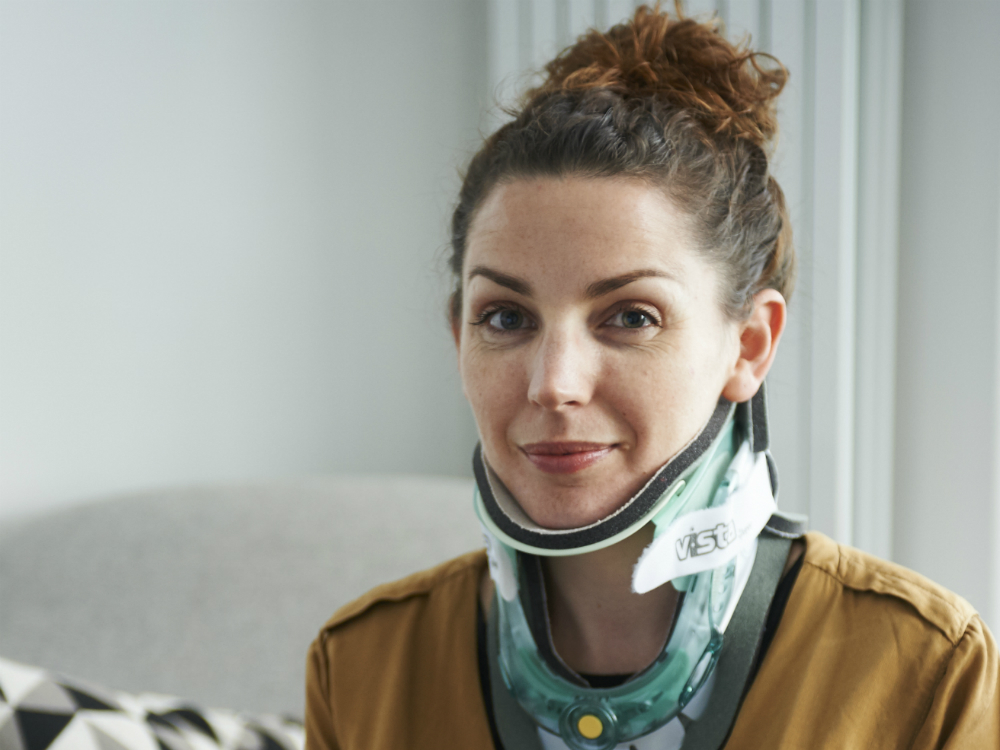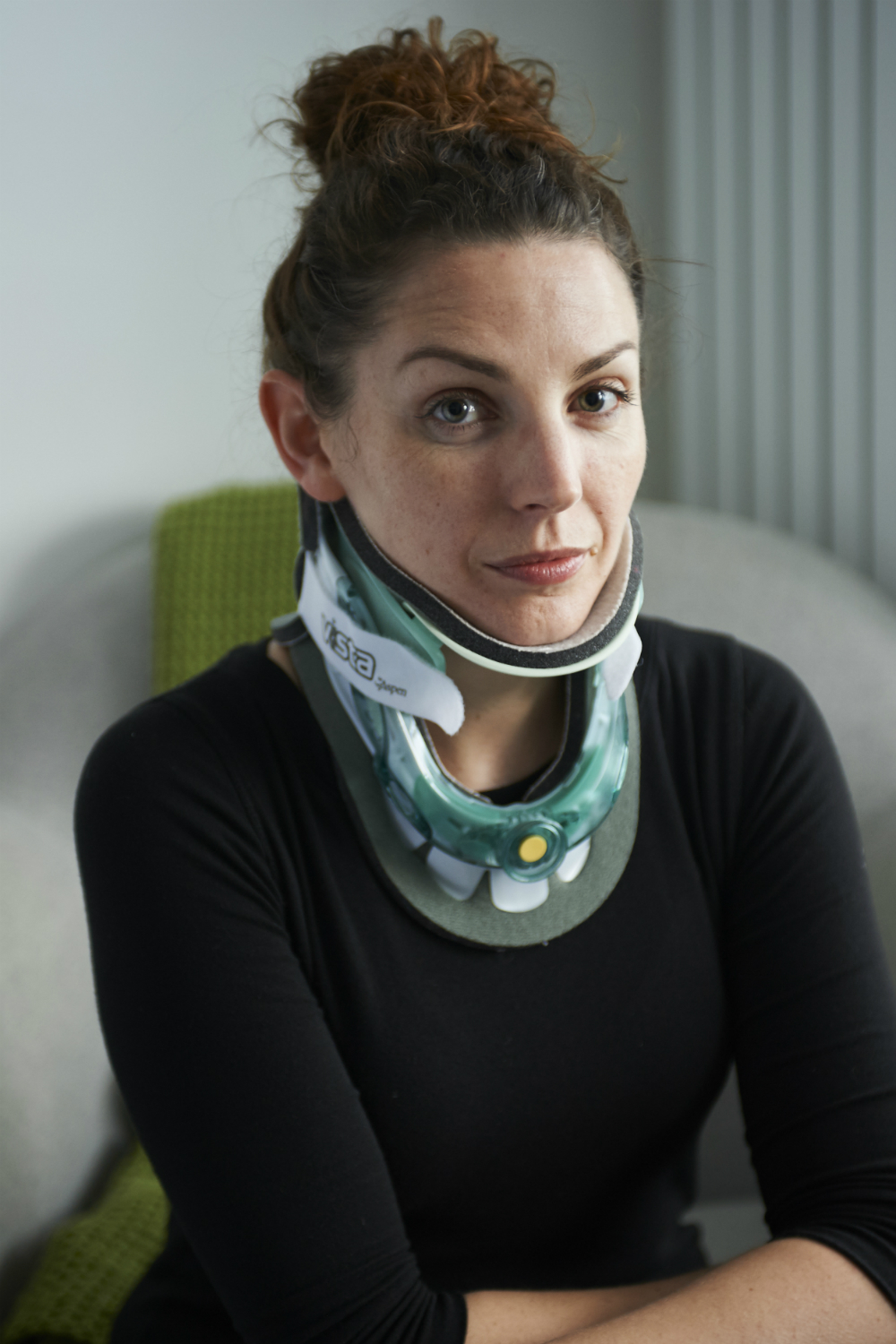'What it feels like... To fundraise to save your own life'
In January, Jessica Kill, 38, was diagnosed with a devastating condition. Now she has three months left to raise enough money for surgery.

In January, Jessica Kill, 38, was diagnosed with a devastating condition. Now she has three months left to raise enough money for surgery.
'It was last Christmas when I realised something had gone really, horrifyingly wrong. 'My sons and I were at my mum's house in France, but I could barely get through the day without needing to lie down. They'd go for long, wintery walks - playing and laughing and full of energy - while I had to stay behind, spread out on the sofa and trying not to be sick. I couldn't drink because I already felt so dizzy, and my head hurt.
I tried to push on through - I thought this was just 'another one of those things that happened to me' - but by the time we got home from the holiday, my speech was slurring and my tongue was numb. I figured I'd had a stroke.
I've been sick my whole life, but I didn't know it until seven years ago. At 31, I was working in projects and had a vibrant social life - but I'd spent my 20s in and out of doctors' surgeries with various ailments. My joints hurt a lot - that was 'growing pains'. My stomach was bloated - that was 'IBS'. And my energy levels were down - that was a 'deficiency'. It was endless, but every time I asked for help, I was told I was just 'unlucky', and that I needed to take a different combination of vitamins, or pain relief, or mix up my diet a bit.
I was constantly in pain, but nobody was taking me seriously - one doctor even suggested that I was 'just stressed out' from being a single working mum. So when my rheumatologist eventually diagnosed me with Ehlers Danlos Syndrome, I felt sheer relief - like I was actually quite strong for coping for so long. I could do physio. Things could get better.
That feeling disappeared in January. As my dad freaked out about my slurred words, I headed to the hospital and tried not to fear the worst. But while the doctors kept me on the stroke ward for a week, they eventually decided that wasn't it. I asked whether it could be CCI - Cranial Cervical Instability - a condition linked to EDS, which sees your skull slowly crush your neck, causing constant pain and eventual paralysis. They said they didn't think so, and sent me home. I love the NHS - I think they're amazing - but as I lay in bed back in Birmingham, I just knew they were wrong.
As a project manager, my whole career has been about research, so I took things into my own hands. Normally, I'd never recommend using Google as a means of self-diagnosis, but when you're already suffering from an incredibly rare disorder - which experts have already said is the most 'neglected' condition 'in the history of modern medicine' - then you have to take charge of the situation. I discovered that in order to be officially diagnosed with CCI, I needed to have an upright MRI scan.
Celebrity news, beauty, fashion advice, and fascinating features, delivered straight to your inbox!
That's no big deal in America - most large hospitals can do that for you, easy peasy. But over here, you have to go to London and pay privately for the procedure. My family lent me the money, but this time when I received the results, I was devastated. In the UK, CCI may as well be a death sentence. There's very little research into its treatment, and it causes rapid degeneration. For years, I'd just picked myself up and carried on, regardless of how difficult life became. This felt like too much to handle.

Donate to Jess at teamjess.co.uk
My sons are eight and 16, and I'm a single parent, but suddenly the days of navigating Lego instructions and negotiating curfews were gone. We used to go for holidays in Cornwall every Easter and play on the beach, but this year, we stayed at home. My symptoms were getting worse, and even with a hard plastic neck brace, it hurt to move. Without being melodramatic, it actually hurts to smile.
My eldest son knows I'm really sick, but he starts his GCSEs in a couple of weeks and I'm trying to protect him from the realities of my condition until his exams are over. The youngest just wonders why I'm not fun any more. My children are my whole world, and it breaks my heart to let them down. But that's what I feel like I'm doing right now.
For the first time in my life, I've had to take long term sick leave from work. Even getting out of bed in the morning feels impossible because I'm in so much pain. At the moment, I can just about do it, then the childminder takes my kids to school and I lie down on the sofa to recover. I'll get up to do some washing - then I'll go and sit down again. By the time evening rolls around, I try to push through the pain to make dinner, but reading practise and homework has to take place in bed. The next day I do it all again.
If this was just my life now - if there was no cure - then I'd have to accept my fate. But there is an operation that could save my life and and dramatically reduce my symptoms. But it's not available in the UK. It's not even available in the rest of Europe - if it was, the NHS would pay for me to have the procedure overseas. Instead, it's only performed in America, even though it has a 95 per cent success rate.
That means that it's down to me to fund it - all £150,000 of it. Otherwise I'm sentenced to a life of constant pain, paralysis and organ failure. I'll need to be fed with a tube, and I'll have to sleep with a machine so that I don't stop breathing. I won't be able to play with my sons, and I won't be able to work. It's a horrifying prognosis, and it scares me deeply.
I don't like asking people for support, and I hate asking people for money. But while my friends are amazing, and my family is constantly there for me, we can't do this on our own. I'm learning that independence only gets you so far - sometimes, you other people to lean on. Because I don't want to give up - for me, and for my children, I'm not ready to be defeated. But at the same time, I feel like I'm waving my own white flag. I need help. And I need it now.'
The leading destination for fashion, beauty, shopping and finger-on-the-pulse views on the latest issues. Marie Claire's travel content helps you delight in discovering new destinations around the globe, offering a unique – and sometimes unchartered – travel experience. From new hotel openings to the destinations tipped to take over our travel calendars, this iconic name has it covered.